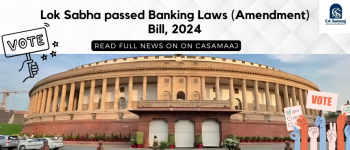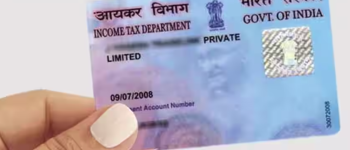CBI Arrests Two CBDT Officers in Panaji for Alleged Bribe in Pending Contractor Bills Case
Nov 18, 2024 | 08:37 PM
Read Time:

The Central Bureau of Investigation (CBI) arrested two assistant accounts officers of the Central Board of Direct Taxes (CBDT), Pankaj Kumar and Aul Wani, in Panaji on Friday for allegedly demanding and accepting a bribe to clear pending bills of a contractor. The arrests were made following a written complaint filed by Kamlakant Chaturvedi, a contractor whose company provides manpower services to the Income Tax Department and other entities.
Details of the Allegations
Chaturvedi reported that seven of his monthly bills, pending for seven months, were deliberately withheld by the officers for harassment.
He claimed the officers demanded ₹2 lakh for releasing the bills, which were eventually negotiated to ₹1 lakh.
Chaturvedi approached the CBI, expressing his unwillingness to pay the bribe.
CBI's Operation
The CBI verified the complaint through PI (CBI, ACB) Sandeep Haldankar, confirming that Kumar demanded the bribe.
After registering the case under Section 7 of the Prevention of Corruption Act, 1988 (amended in 2018), the CBI set up a trap to catch the accused red-handed.
During the operation, Chaturvedi handed over ₹1 lakh in cash to Kumar at Patto, Panaji, leading to his immediate arrest.
CBI's Anti-Corruption Efforts
This arrest underscores the CBI's ongoing commitment to curbing corruption in public offices. Last month, the bureau registered a case involving alleged fraudulent loan approvals by a nationalized bank using forged documents, further highlighting its vigilance against financial malpractices.
Implications
The arrests bring attention to systemic issues in public service departments, where contractors and businesses often face undue harassment. The incident reinforces the need for stricter oversight mechanisms and zero tolerance for corruption to ensure transparency and accountability in government operations.

Author: CA Samaaj
Share your views
Please keep your views respectful and not include any anchors, promotional content or obscene words in them. Such comments will be definitely removed and your IP be blocked for future purpose.
 6th Dec 2024
6th Dec 2024
 5th Dec 2024
5th Dec 2024
 3rd Dec 2024
3rd Dec 2024
 2nd Dec 2024
2nd Dec 2024
 2nd Dec 2024
2nd Dec 2024
 26th Nov 2024
26th Nov 2024
 26th Nov 2024
26th Nov 2024
-may-reflect-input-tax-credit-(itc)-mismatch-if-not-taken-care-of--.jpg) 24th Nov 2024
24th Nov 2024
 24th Nov 2024
24th Nov 2024
 24th Nov 2024
24th Nov 2024
 23rd Nov 2024
23rd Nov 2024
 23rd Nov 2024
23rd Nov 2024
 23rd Nov 2024
23rd Nov 2024
 21st Nov 2024
21st Nov 2024
 21st Nov 2024
21st Nov 2024